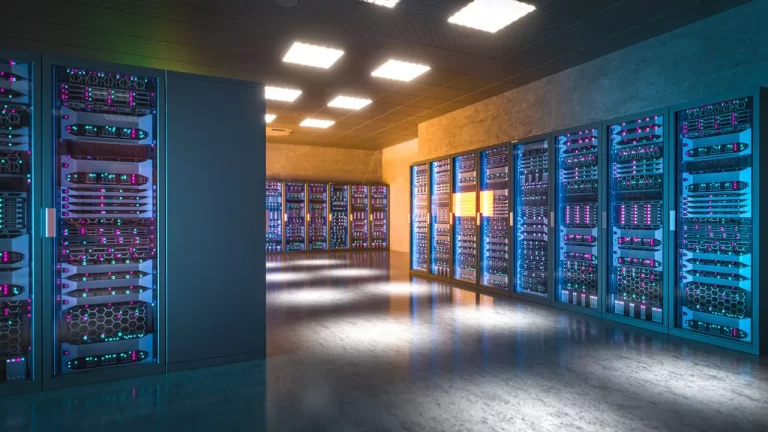In the most strategic manner to place Brazil amidst the digital economy boost, a coherent set of tax incentives for large-scale data center investments has recently been launched. Proposed by the Finance Minister, Fernando Haddad, the plan aims at investing in Brazil’s renewable energy resources, strategic geographical position, and the expanding need for sustainable digital services. It is a great progress toward the direction of modernizing the country’s economy and enjoying it smoothly.
Aiming for $352 Billion in Investments
The national government of Brazil is planning that, based on new announced measures, it may attract roughly 10 billion reais which are approximately equal to a $352 billion investment in the next ten years. These investments are to lead to the growth of such industries as construction, telecommunications, cloud, and artificial intelligence.
Thus, applying for such an agreement, the Brazilian officials expect to boost the country’s competitiveness, address the problems of internet connection in the provinces, and develop high technologies for job generation. It has also been framed as the mechanism for attracting substantial inflows in the short term, which is consistent with the fiscal and structural reforms agenda of the country.
Sustainability at the Forefront
It is quite notable that sustainability is at the very heart of Brazil’s new tax incentive program. To obtain the tax benefits, the data center projects must meet some strict sustainability rules, the key among them being the rule that states the data center has to be 100% dependent on renewable power sources.
This move complies with the country’s CO2 emissions reductions policy under the Paris Accord as well as general policy shift to green economy in Brazil.
Data centers which have previously been criticized for their high energy utilization will now be allowed to use reliable and affordable hydroelectric, solar and wind generated energy from Brazil to form a Green Digital Economy that is as revolutionary as it is innovative and sustainable.
Engaging the Tech Industry
As part of the promotional effort, Finance Minister Fernando Haddad plans a key outreach mission to Silicon Valley in early May.
Scheduled for May 6, Haddad will meet with executives from leading global tech giants, including cloud computing, AI, and semiconductor firms, during a breakfast session in Palo Alto.
The purpose: To make Brazil the next top global location for future data center investment that meets all of Silicon Valley’s demands for investment opportunities.
Haddad is predicted to focus on the position of Brazil in the clean energy industry, its business-friendly policies in the future administration, its non-alignment with any country in the trade war and the domestic market that may be estimated at over 200 million.
Strategic Positioning Amid Global Trade Tensions
The decision is made at a time when global trade risks, particularly those between the U.S. and China, cause global companies to look for politically stable and neutral countries for their investments.
Brazil’s approach to remain neutral in any global disputes and giving infrastructure plans more dominance by prioritizing sustainability largely originating from it gives tech organizations a good option as they look to diversify their supply chains and build large digital ecosystems.
Those countries that can provide energy security, political stability, and investment-friendly policies are viewed as ideal locations for the new data center investments.
Legislative Approval Required
Although the incentives have been introduced via an executive order, permanent implementation will require ratification by Brazil’s Congress.
Government officials remain optimistic, stressing that the policy is structured not as a cost to the treasury but as a revenue generator through broader economic expansion.
Moreover, the incentive plan is seen as a bridge strategy, complementing the larger tax reform that Brazil is expected to complete by 2033, modernizing its entire fiscal system to support innovation, sustainability, and global competitiveness.
Potential Beneficiaries and Early Movers
A few of the global companies have already expressed their investment interest. Especially now, ByteDance, the Chinese company that owns TikTok, supposedly considers options to add more servers, and Brazil is the frontrunner candidate on the list. Other key cloud service providers, which currently have footholds in Brazil through AWS, Microsoft Azure, and Google Cloud, are believed to expand further the amount of investment they allocate towards the country on account of the new policy. Local players such as the Brazilian technology companies and telecom operators may also stand to gai,n whereby the improvement of the domestic industry would thus be realized.
Broader Impacts on Brazil’s Tech Ecosystem
Beyond direct foreign investment, the policy is expected to spur local innovation and technological advancement.
With more data centers, Brazil could see lower latency for cloud services, improved data sovereignty, better cybersecurity standards, and expanded research and development activities in AI, machine learning, and quantum computing.
Universities and tech incubators are also likely to benefit, with new partnerships between global firms and local educational institutions poised to grow.
Conclusion
This move by Brazil to give tax incentives for data center investment can be ranked as one of the important measures in achieving a sustainable data center industry in the country. With focus on incentive-based fiscal policies adoption and encouragement of sustainable power generation through renewable energy resources the country has created for it self an attractive proposition for the international tech companies that are seeking for a country that will provide suitable environment for investment and growth of the technologically intensive industries that are sustainable in the long run.







